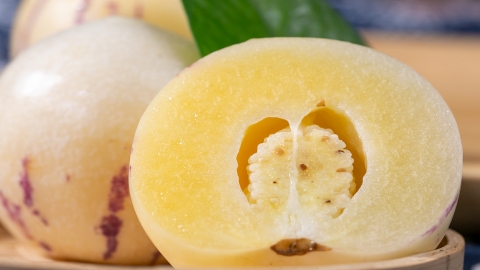What foods are incompatible with ginseng fruit?
Generally speaking, Solanum muricatum (also known as "人参果") is incompatible with certain foods such as tea, cucumber, crab, milk, and snails. The specific explanations are as follows:

1. Tea
Tannic acid in tea may bind with certain components of Solanum muricatum, affecting nutrient absorption and possibly causing gastrointestinal discomfort. It is recommended to drink tea some time after consuming Solanum muricatum.
2. Cucumber
Cucumber contains an enzyme that breaks down vitamin C in Solanum muricatum, thereby reducing its nutritional value. Additionally, cucumber is cool in nature and consuming it together with Solanum muricatum may increase internal coldness, which is not advisable for individuals with a cold constitution.
3. Crab
Consuming Solanum muricatum together with crab may cause allergic reactions or indigestion. Crab is a cold-natured food, while Solanum muricatum is generally neutral with a slightly cool nature. Consuming them together may place additional strain on the stomach and spleen, especially for those with weak digestive systems.
4. Milk
Consuming Solanum muricatum with milk may interfere with the digestion and absorption of proteins. Components in Solanum muricatum may bind with proteins in milk to form complexes that are difficult to digest, potentially causing indigestion.
5. Snails
Snails, including freshwater and sea snails, are cold in nature. Consuming them together with the relatively warm-natured Solanum muricatum may interfere with nutrient absorption and irritate the gastrointestinal tract, causing discomfort such as abdominal pain and diarrhea.
Although the above-mentioned foods are considered incompatible with Solanum muricatum, individual responses may vary, and adverse effects typically occur only after consuming large quantities.






